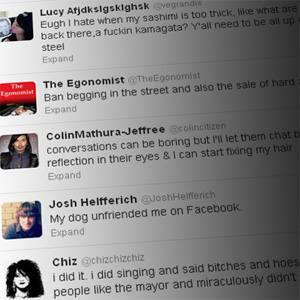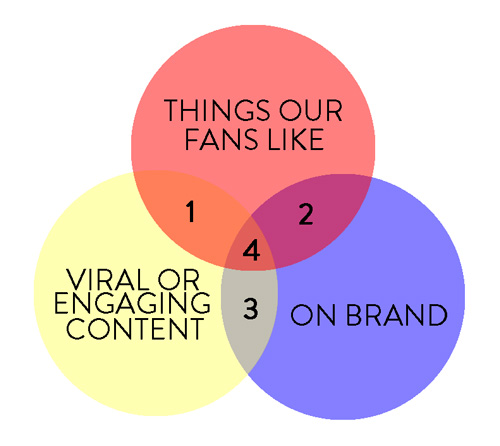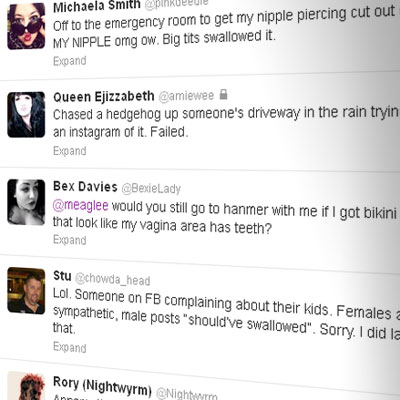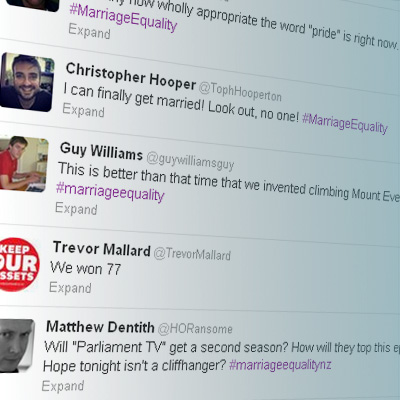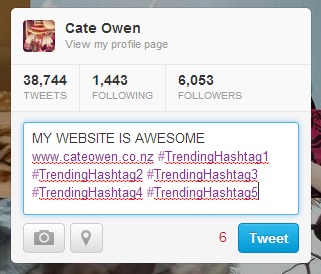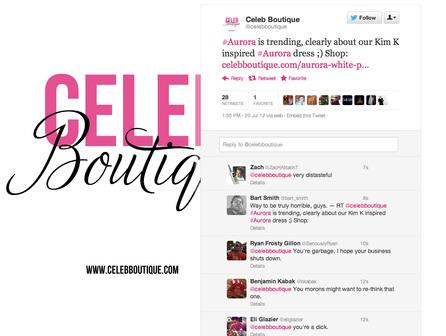In Twitter’s earlier days, we used to tweet about things that, although safe for work, were a little on the naughty side. One person would tweet something slightly dodgy, and another would tweet back “there goes your brand!”
Yes, I know, we were hilarious.
But there was a grain of truth to those tweets, which is why so many high-profile social media people in NZ are now upping their Facebook privacy settings, retreating to locked Twitter accounts, and taking old YouTube clips down.
There’s a cultural issue in New Zealand around what we expect of heavy digital users – and you’re damned if you do, and damned if you don’t. I’m talking about taking charge of your digital profiles: Branding YOU and making sure what you present is the way you want it.
The other day, social media consultant Courtney Lambert published this blog about online personal branding. In a nutshell, while the concept of personal branding is widely accepted and expected internationally, in New Zealand it’s often looked upon with derision or suspicion: Personal branding is for celebrities, and if you think you’re a celebrity, then you’re a dick.
Here’s the rub: If you are online, you need to take care of how you appear online regardless of your [lack of] celebrity status. You need to take ownership of your actions, know your boundaries, and have a bit of a plan – you can bet potential employers, lovers, and friends are googling you if they want to know more!
Nothing is secret, really. Trolls can be found, workplaces googled, last names attached to first names on seemingly anon Twitter accounts. If you’re doing something online that would make you embarrassed offline, you probably shouldn’t be doing it!
Transparency issues aside, New Zealanders tend to have a problem with Kiwis saying they’re good at something, let alone able to offer advice to others. We have performance anxiety. We don’t like tall poppies. We like to think we live in a society without classes, despite making fun of “white trash”, “westies”, “people from Gore”, or “dole bludgers”. We also tend to think that if someone’s putting themselves out there and trying to build a profile for themselves, then they are “asking for it” or “deserve everything they get”.
Yet we don’t think the same way about Americans, or Brits, or Canadians, or Scots. We nod enthusiastically and gobble up their wisdom. It’s the old “expert from out of town” syndrome.
The other issue is the way we think about each other in relation to where we work, to our jobs, and how much accountability or personal opinion comes from that. Where is the personal/professional boundary? Sure, we are not our workplaces, but how much of how we behave online is a reflection on our ability to do our jobs?
Some New Zealanders assume that because someone works somewhere they:
- Love and support everything their workplace does,
- Hate and deride everything their work’s competitors do,
- Are massively biased because of their job,
- Must behave to a certain standard because of where they work, regardless of what crap people throw at them. I’ve seen trolls bait people, trying to get a response so they can run off to that person’s employer. But it’s not just trolls running off to employers – I’ve heard about a NZ company approaching someone’s employer over a tweet about a bad product/service.
Please note, the rules don’t apply to those who are calling others out on them. That would be hypocritical.
There is a thorny issue in there – can you publicly talk about things your work’s competitors are up to that you like? Would you go on the radio and say that? Or is it a case of knowing what “good” looks like, and simply acknowledging it? Keep in mind, it sometimes makes the national paper when workers from one company congratulate their workplace’s competitors via social media.
As a country, we’ve got some growing up to do.
Owning yourname.co.nz or .com is commonsense in this day and age. Having a blog for your thoughts, opinions, and digital curation is a good thing. Positioning yourself as helpful or knowledgeable about an area where you’re educated and/or experienced is not uppity, it’s fact – and good business sense!
It’s time to think about this stuff, or find yourself overtaken by people who are.
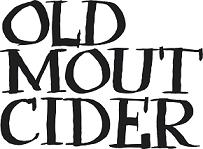 This week’s winner is @Kiwi_Chatter for his work keeping New Zealand tourism alive and kicking. Follow Old Mout Cider to get your delicious, delicious goodies.
This week’s winner is @Kiwi_Chatter for his work keeping New Zealand tourism alive and kicking. Follow Old Mout Cider to get your delicious, delicious goodies.
